Discoveries
-

Targeting the WIN Site of WDR5
Proposed mechanism of WIN site inhibition. The inhibitor (i) binds to the WIN site of WDR5, displacing it from its binding site on chromatin. A major result is a decrease in transcription of genes encoding ribosomal proteins (RPGs), leading to a disruption of protein synthesis, the nucleosomal stress response, and… Read MoreMar. 21, 2019
-
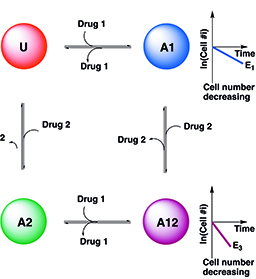
In Search of Synergy
In recent years, the number of complex diseases such as cancer and drug resistant infections that are treated with multiple drugs has rapidly increased. Through combining drugs, one hopes to obtain synergy either by increasing potency (so the desired effect can be achieved with lower drug doses) or increasing efficacy… Read MoreMar. 15, 2019
-

Activation of ATR for Distinct Signaling Functions
Reproduced under the Creative Commons Attribution Noncommercial Share Alike 4.0 International License from T. E. Bass and D. Cortez, (2019) J. Cell Biol., published February 12, DOI: 10.1083/jcb.201810058. Copyright 2019, Bass & Cortez. ATR (ataxia telangiectasia-mutated and Rad3-related) is a kinase well known for its role in the DNA damage… Read MoreFeb. 20, 2019
-
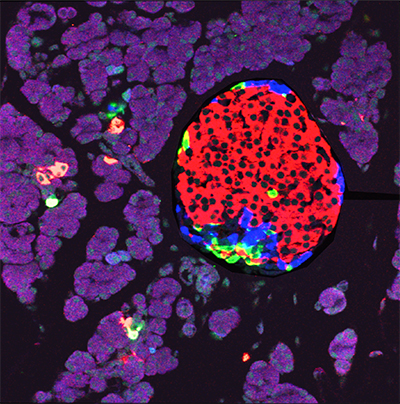
Key to Islet Cell Differentiation
Micrograph of an adult mouse pancreatic islet with immunofluorescence staining for (A) glucagon (α cells, blue), insulin (β cells, red), and somatostatin (δ cells, green). The high pinkish background tissues are mostly acinar and duct cells. Image kindly provided by Guoquiang Gu. Copyright 2019. The pancreatic islets of Langerhans are… Read MoreJan. 31, 2019
-
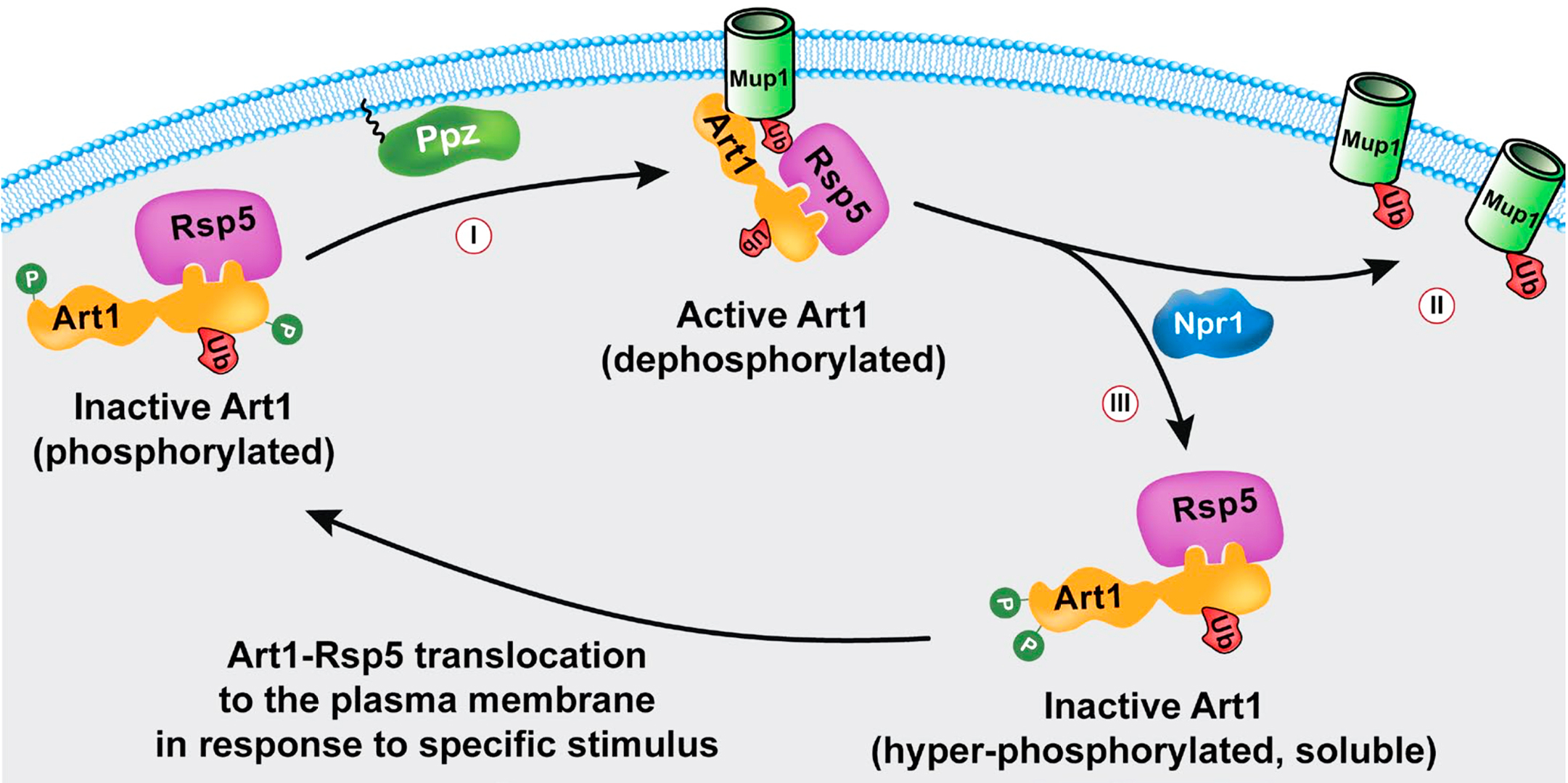
Targeting Proteins for Endocytosis
Reproduced under the Creative Commons Attribution Noncommercial Share Alike 4.0 International License from S. Lee et al., (2019) J. Cell Biol., published January 4, DOI: 10.1083/jcb.201712144. Copyright 2019 S. Lee, et al. One mechanism that cells use to modulate the activity of plasma membrane proteins is to remove them from… Read MoreJan. 23, 2019
-
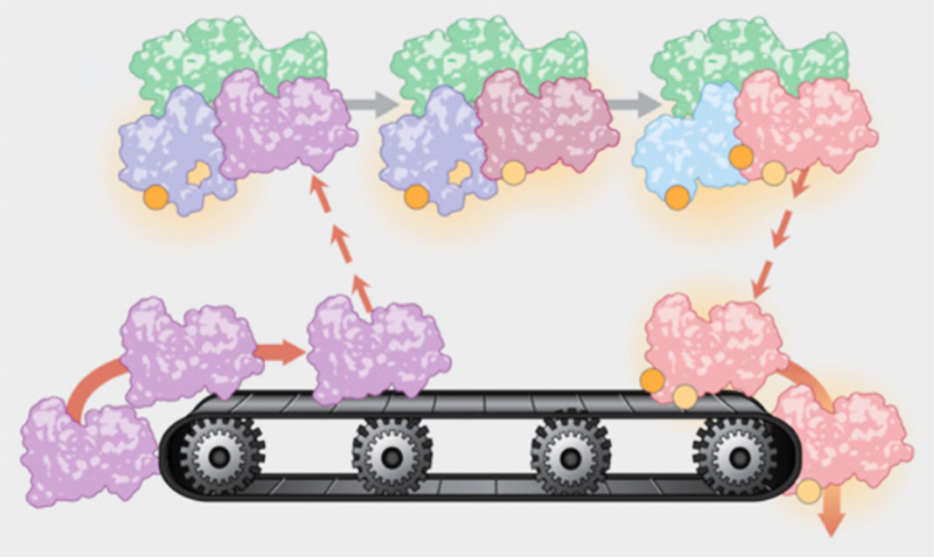
Amplifying the Signal with a Scaffold
Scaffolding proteins serve as sites of binding and organization for the multiple components involved in many signaling pathways. Scaffolding promotes key protein-protein interactions and can substantially amplify a signal; however, if proteins are bound too tightly to a scaffold, signal propagation may actually be hindered. The precise mechanisms that regulate… Read MoreJan. 14, 2019
-

The Fine Points of Exocyst Dynamics
Exocytic vesicles fuse with the plasma membrane (PM) through the action of SNARE proteins, which in turn, are delivered to the vesicles by multisubunit protein tethering complexes. One such complex is the exocyst, comprising two tetrameric subcomplexes, SC1 (composed of SEC3, SEC5, SEC6, and SEC8) and SC2 (composed of SEC10,… Read MoreDec. 17, 2018
-

Keys to Sarcomere Assembly
Figure reproduced under the Creative Commons Attribution (CC-BY) license from A. M. Fenix, et al. (2018) eLife, published December 12, DOI: 10.7554/eLife.42144. The sarcomere is a repeating unit of interdigitating actin and myosin filaments that serves as the building blocks of the myofibrils in striated muscle cells. Sarcomeres are demarcated… Read MoreDec. 17, 2018
-

HMCES: A New Guardian Against DNA Damage
In DNA, abasic sites (apurinic/apyrimidinic or AP sites) occur through spontaneous hydrolysis of the glycosidic bond that joins the base to the deoxyribose ring (a common reaction following formation of some kinds of DNA adducts) or through the action of DNA glycosylases during repair of damaged bases. In double-stranded DNA,… Read MoreDec. 14, 2018
-
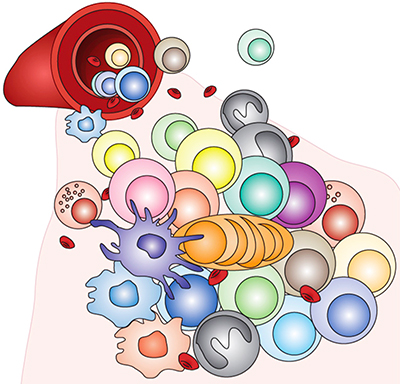
New Revelations from Single-Cell Cytomic Data
Figure courtesy of A.R. Greenplate. Copyright 2018. Cytomics, the “omics” of cell identity, offers the opportunity to systematically identify all cells in a tissue or patient sample, and the recent advent of high-dimensional flow and mass cytometry to the cytomics arsenal has markedly increased its power. Cytomics is particularly valuable… Read MoreDec. 12, 2018